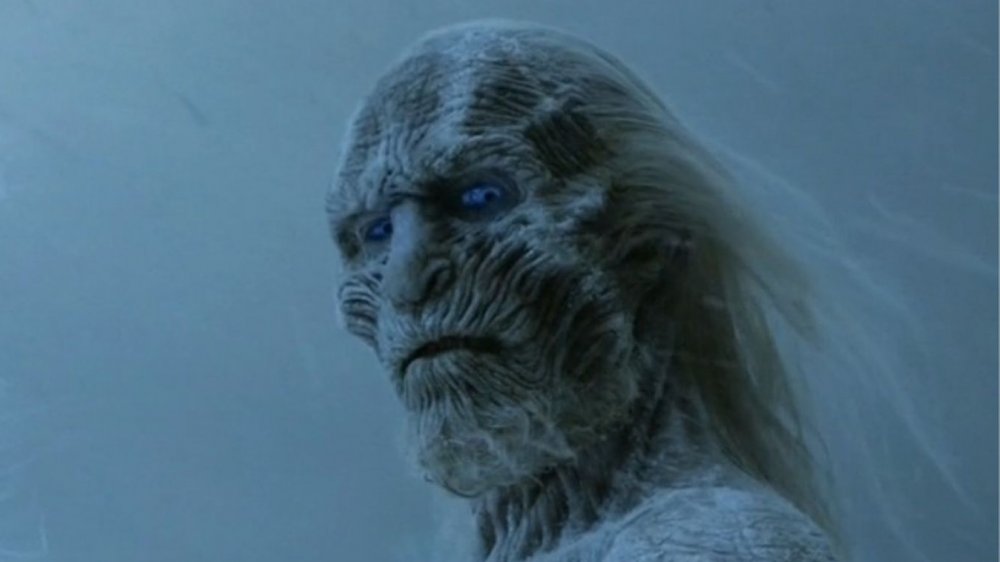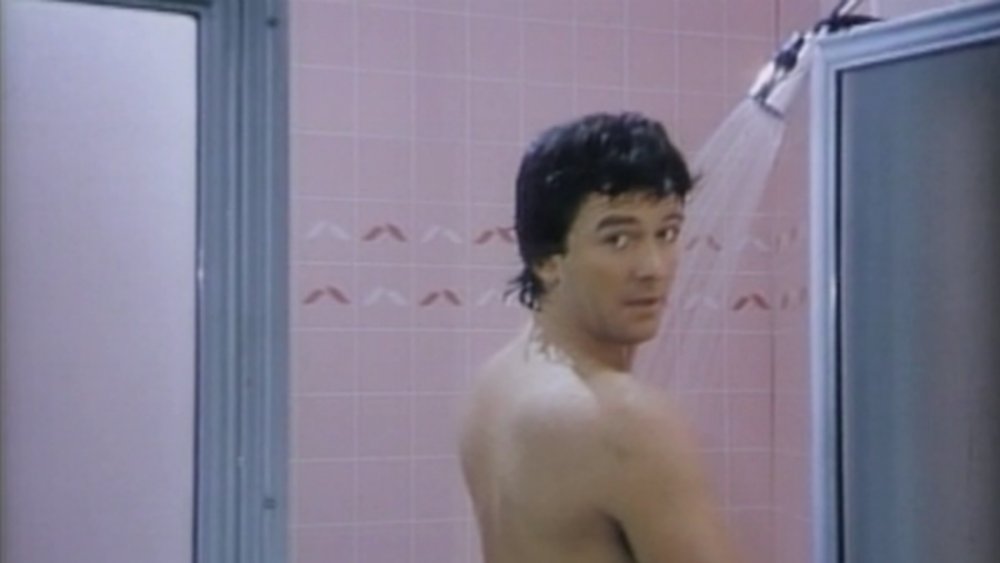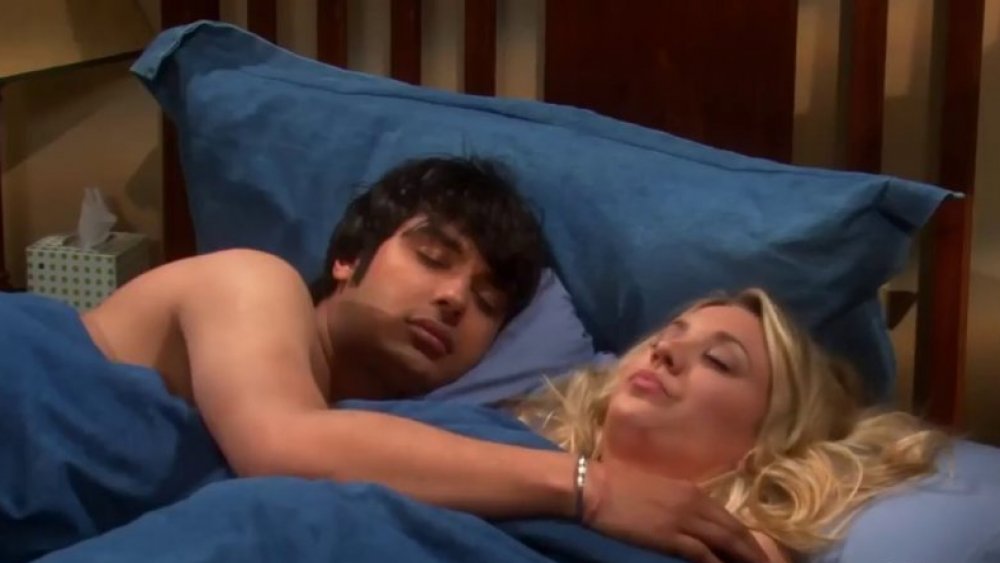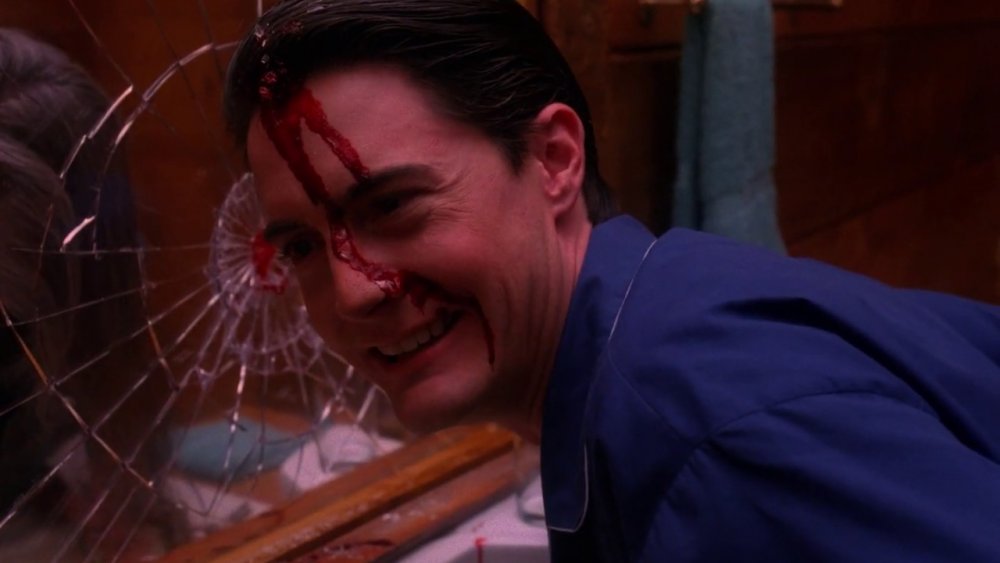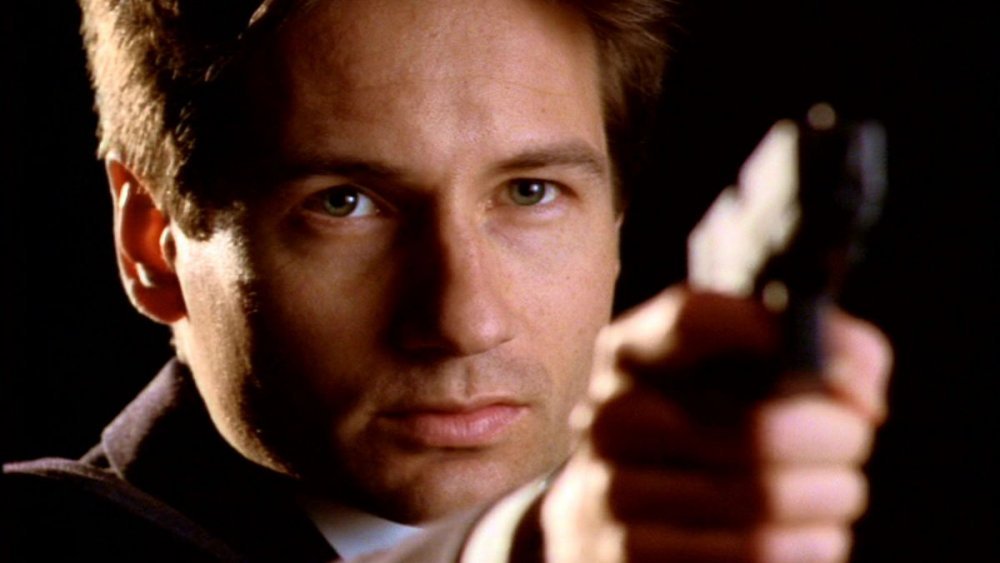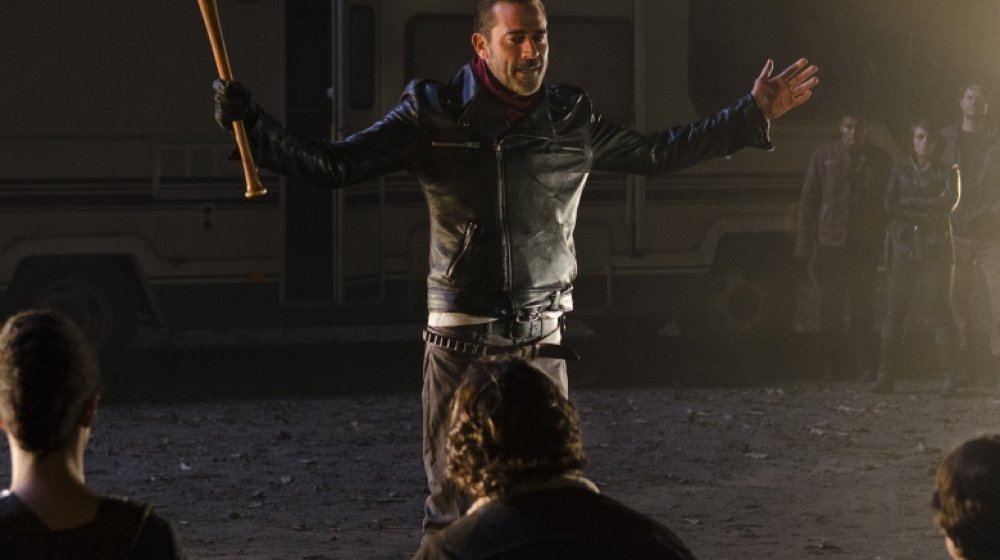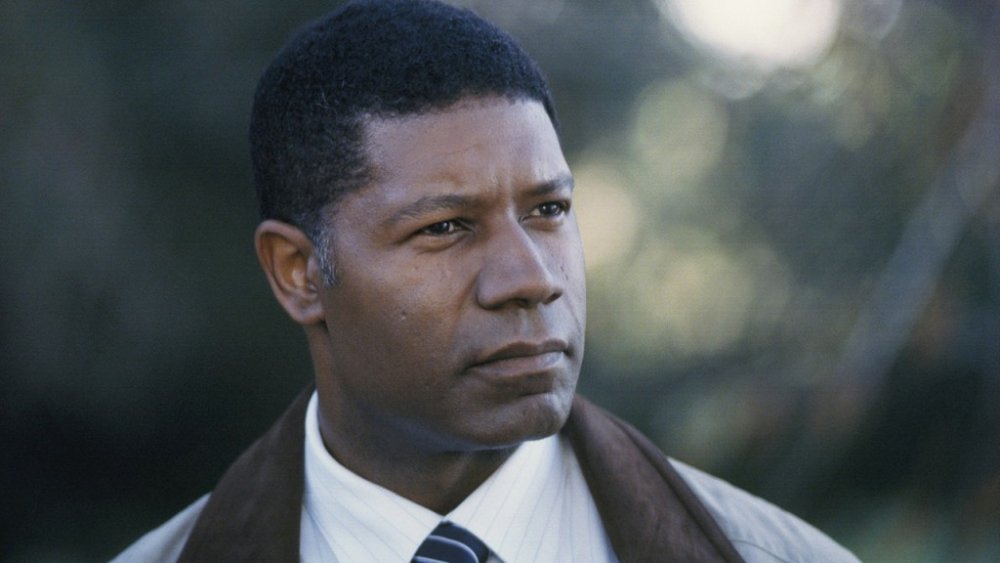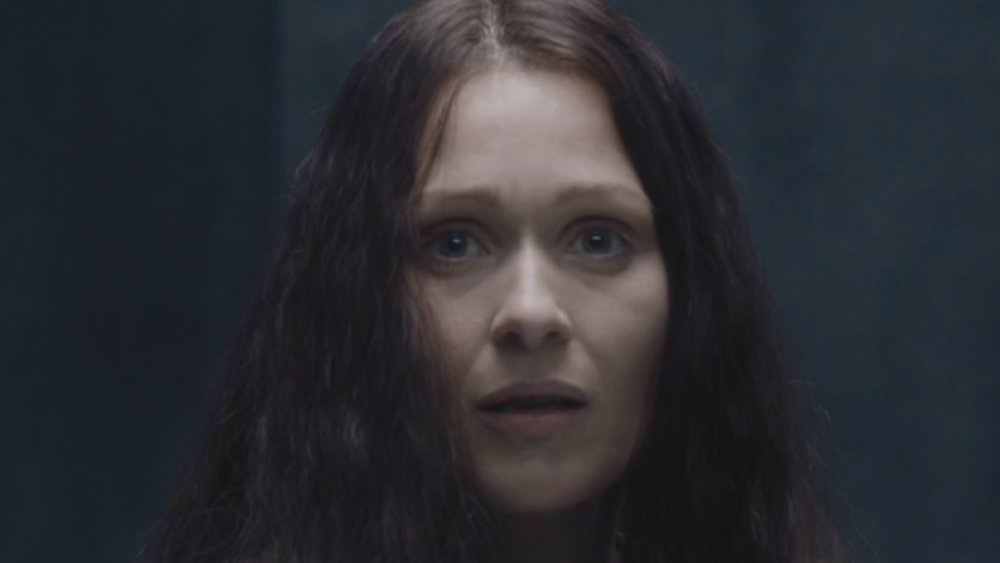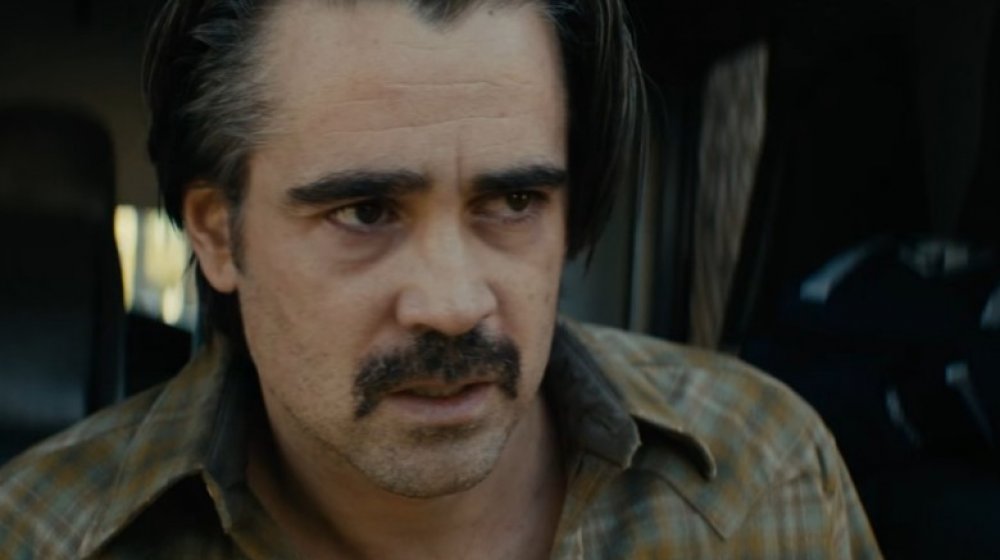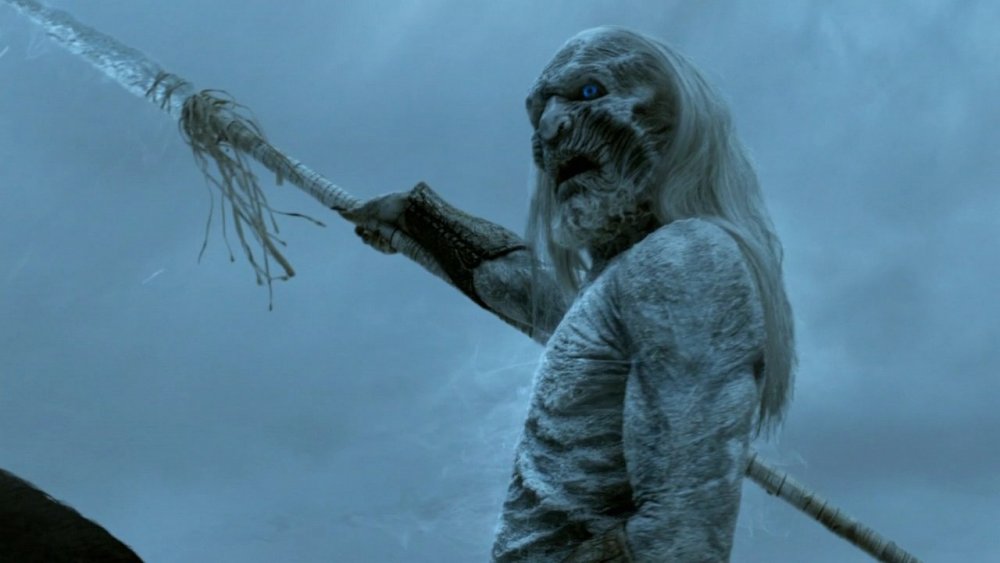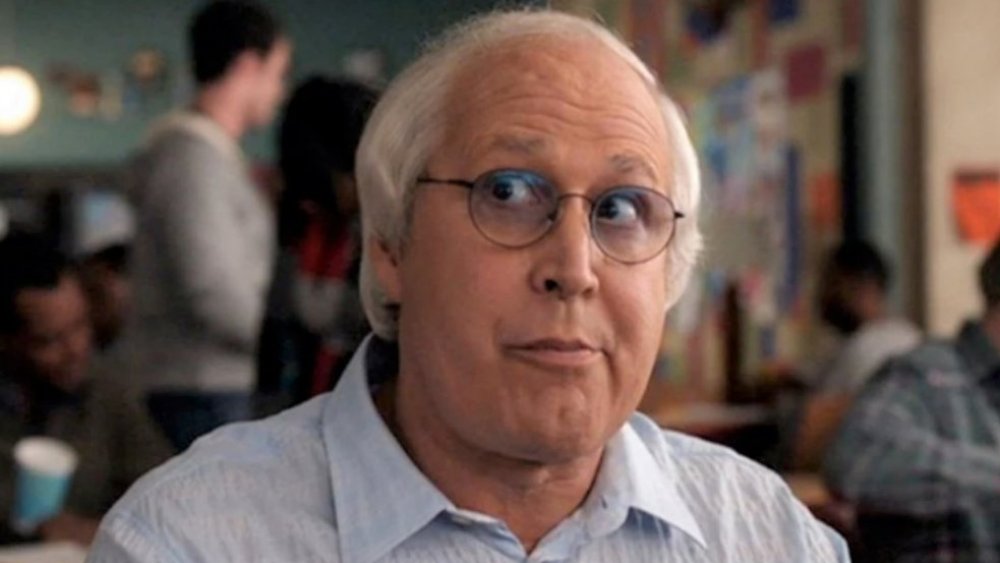TV Cliffhangers That Always Leave Fans Disappointed
From Lost's mysterious hatch to that shocking cutaway on The Sopranos, a great cliffhanger is unforgettable. Whether it keeps viewers engaged or makes them enraged, it's definitely a way to grab an audience's attention. Though some television shows have ended up with cliffhanger endings simply because they were canceled too soon, many writers do their best to craft compelling season finales that pose a huge question, letting fans wait and wonder about what's in store for their favorite story.
However, sometimes writers will take the cliffhanger a little too far, pulling a huge stunt only to undermine or reverse it if it no longer fits into the storyline that follows. It makes sense that shows want to maintain their audiences with shocking moments and big twists, but when it comes to some TV cliffhangers, there's simply no payoff. Here are just a few TV cliffhangers that left fans disappointed in their aftermath. Spoilers for these shows to follow!
Dallas: Bobby Ewing's death was all a dream
One of the most popular dramas of the 1980s, CBS' Dallas was an enormous hit. But after a while, the show started running out of creative juice. Not long after the series dangles the question of who shot J.R. Ewing (Larry Hagman), J.R.'s on-screen brother Bobby (Patrick Duffy) gets a big twist of his own ... and it turns out to be a huge letdown.
After his character's death in a massive car accident during Dallas' ninth season, Patrick Duffy happily went on to pursue new projects. But when the creative team behind the series couldn't quite figure out how to deal with his absence, they begged him to return. Their new strategy? Wipe away the entire ninth season as a dream. Ultimately, Duffy did return (after a salary negotiation), only for his on-screen ex-wife to wake up and see him in the shower during the ninth season finale, which erases the entirety of the plot between his death and his return. This left audiences wondering what was really true anymore, and if any of it mattered. Ultimately, it was a cheap way to fix a character death that turned out to be a huge mistake from a creative standpoint.
The Big Bang Theory: Penny and Raj's wild night
Ensemble sitcoms pair up their characters in a seemingly endless number of combinations. But on The Big Bang Theory, it's pretty clear right from the start that Leonard Hofstadter (Johnny Galecki) and Penny (Kaley Cuoco) are endgame. However, one confusing cliffhanger seems, for a moment, to put that perfect pairing in peril.
Penny and Leonard both date other people throughout the series during breaks in their relationship, but in the season four finale, Penny does something potentially unforgivable when she wakes up — in Leonard's apartment, no less — next to Raj (Kunal Nayyar), one of Leonard's closest friends. Though they agree to keep their hookup a secret, they stumble out of the room, half-clothed, to see everyone else in the living room. Though the gang briefly discusses the issue at the beginning of season five, Leonard seems relatively unperturbed. This becomes a bigger problem later on with one of Raj's girlfriends. Leonard and Penny are meant to be, but it seems odd that he never even talks to her about her wild night with his close friend.
Twin Peaks: "How's Annie?"
David Lynch's surreal drama Twin Peaks was always pretty twisted, but it topped itself by leaving one of its biggest mysteries up in the air for good. As the series progresses, its main villain, a mysterious and sinister force known only as "Killer BOB," appears several times, in both his frightening human form and as the quiet inhabitant of several different citizens of Twin Peaks. After FBI Special Agent Dale Cooper (Kyle McLachlan) arrives in the quiet town to investigate the murder of Laura Palmer (Sheryl Lee), he discovers that Laura's father Leland (Ray Wise) has been possessed by BOB, and is the one who took his own daughter's life.
At the end of Twin Peaks' second season, Dale becomes BOB's newest host just as the original series draws to a close. Horrifyingly, he bashes his face into a mirror (with BOB visible on the other side) as he asks, "how's Annie?", referencing the real Dale's girlfriend. Though Annie briefly reappears in Lynch's prequel film Fire Walk With Me, her fate as far as Dale is concerned is left in the air forever, despite the fact that Twin Peaks' story ended up continuing in a 2017 revival series.
The X-Files: The end of Mulder
Throughout its original nine seasons, two follow-up seasons, and two films, The X-Files rests on the strength of the chemistry and bond between Fox Mulder (David Duchovny) and Dana Scully (Gillian Anderson). Unfortunately, in an attempt to shock X-Files' considerable audience, the show threatens one of its two main characters as a season finale cliffhanger, only to reverse course right away.
In the season four finale "Gethsemane," Mulder discovers potentially ironclad proof of alien life, while simultaneously discovering an enormous government coverup. However, at the beginning and end of the episode, Scully is seen investigating a dead body in Mulder's apartment, which she then confirms is Mulder himself as the episode closes. Her partner has apparently killed himself. Though this seems like an incredible cliffhanger in the moment, season five opens with the reveal that Mulder faked his death to evade the government, lessening the incredible blow of "Gethsemane" and its seemingly daring ending.
The Walking Dead: Negan's big threat
By the time AMC's massively popular series The Walking Dead reached its sixth season, it had pulled off some of television's very best twists. But as happens to so many long-running shows, it hit a point where all of its main characters felt more or less invincible. The show takes a (literal) big swing in its season six finale, "Last Day on Earth," which ultimately fizzled with fans, who found the cliffhanger downright insulting after years of investment in the show.
As the episode draws to a close, it introduces one of the show's biggest villains, the violent Negan (Jeffrey Dean Morgan). He terrorizes Rick Grimes (Andrew Lincoln) and his ragtag band of heroes with his barbed-wire wrapped baseball bat, Lucille, threatening to kill one of them. As he raises his bat, the screen cuts to black — and though season seven does show Negan killing multiple members of Rick's group, the cliffhanger itself feels exploitative at best. Vox critic Emily VanDerWerff, who recapped the show at the time, perhaps summed it up best when she described "Last Day on Earth" as the "worst episode the show [had] ever done," saying the episode was "a dirt-stupid finale [which] travels in circles before a cliffhanger that insults the show's fans."
24: President David Palmer's apparent assassination
Throughout its seven season run (as well as multiple films), Fox's 24 maintains its entirely original structure, with each season taking place over the course of one 24-hour period. With Kiefer Sutherland at the helm as special agent Jack Bauer, who gets through some pretty stressful days hunting terrorists and trying to save the United States from imminent attack, 24 was a major hit by the time its second season hit the airwaves in 2002.
After leaving audiences reeling in the wake of its first season, in which Jack's wife and unborn child are murdered by one of his colleagues (who turns out to be a double agent), 24 tries to end its second season with a similarly huge finish. As the season closes, beloved President David Palmer (Dennis Haysbert) is giving a victorious speech, when an assassin hired to kill him shakes his hand, poisoning him. Though it seems like the end for President Palmer, he's fine by the time season three opens, disappointing fans who loved 24's willingness to take risks.
Killing Eve: "Killing" Eve
Masterminded by Phoebe Waller-Bridge, the creative genius behind Fleabag, BBC's Killing Eve was a hit right out of the gate when it premiered in 2018, featuring powerhouse actresses Sandra Oh and Jodie Comer in roles that quickly earned them international acclaim. Bored with her humdrum life, Canadian detective Eve Polastri (Oh) is asked to join a secret group within MI6 which has been tasked with hunting Villanelle (Comer), a ruthless assassin, who, in turn, becomes fascinated with Eve. As the two women dance around each other, a strange attraction develops, and in the stunning first season finale, Eve brutally stabs Villanelle, leaving her for dead in Paris.
This shocking ending picks back up as the second season opens, with Eve stunned at her own actions. But unfortunately, the season two finale tries to recreate that same magic, which doesn't quite work. This time, it's Villanelle who leaves Eve for dead, but any viewer with sense likely knew that, since a third season was already confirmed, the title character probably wasn't dead. Sure enough, Eve is shown to have survived as season three opens, proving this attempt at a second cliffhanger to be completely anticlimactic.
Sherlock: Eurus vs. Watson
Sherlock, the BBC's modern-day adaptation of Arthur Conan Doyle's classic detective stories, is packed full of the twists and turns you'd expect from any Sherlock Holmes property. With Benedict Cumberbatch and Martin Freeman at the helm as Holmes and Dr. John Watson, respectively, it initially blew audiences away. However, in its fourth season, Sherlock attempts a shocking cliffhanger, only to undercut its own attempt shortly thereafter.
When John's therapist (played by Sian Brooke) reveals her true identity as Eurus Holmes, Sherlock's long-lost sister out for revenge, audiences were shocked. Then, in season four's "The Lying Detective," viewers were left further stunned when, at the end of the episode, Eurus shoots John, apparently killing him. However, in the next episode, it's revealed that she simply used tranquilizers, making this cliffhanger a pretty cheap attempt at shock value. Considering that Sherlock pulled off a much better fake-out cliffhanger at the end of its first season by making audiences believe that Sherlock himself was dead, this cliffhanger is all the more disappointing.
True Detective: A main character meets a gruesome end
After a stunning first season featuring Woody Harrelson and Matthew McConaughey, HBO's anthology series True Detective returned for its sophomore season in 2015 — but unfortunately, the magic of the first season was long gone. Thanks to a convoluted plot involving shady real estate deals, lackluster lead performances, and a mystery that ultimately doesn't even matter, True Detective's second season falls completely flat. This isn't helped by a particularly irritating cliffhanger early in the season.
While Colin Farrell's Detective Ray Velcoro searches an apparently empty house looking for evidence for a murder investigation, a masked assailant shoots him at point-blank range. Thus ends the season's second episode, "Night Finds You." Killing a main character in an anthology series could have been an exciting risk for a show that doesn't need its main characters to return in later seasons, but unfortunately, True Detective doesn't take that route, revealing that Velcoro was actually shot with riot shells and is completely fine. True Detective is now seen as having hit a huge sophomore slump, and episodes like this are part of the reason why.
Game of Thrones: Sam's miraculous escape
Throughout its eight seasons and nearly 10 years on television, Game of Thrones made a name for itself thanks to its exciting cliffhangers and twists. Whether it was brutally murdering its main characters, reviving them from the dead, or depicting the birth of mythical dragons, it got people talking. However, its season two finale, "Valar Morghulis," features a cliffhanger that's simultaneously incredibly thrilling and totally frustrating.
As Samwell Tarly (John Bradley) and his fellow members of the Night's Watch explore beyond the Wall, they hear an ominous horn sound three times. This signals that the seemingly unkillable White Walkers are hot on their heels. Sam's compatriots ultimately leave him behind when he can't keep pace, and as he cowers behind a rock, a massive army of White Walkers surrounds him, with a high-ranking Walker even maintaining eye contact with him as he ineffectively hides. However, in Thrones' third season, when Sam reports that the undead army is on its way to Westeros, nobody even asks how a barely-armed, relatively slow Night's Watchman managed to evade these foes, who aren't exactly shy about murdering anything in their path. How did Sam survive, and why doesn't the series ever address it?
Community: Pierce's big exit
A sharp, clever sitcom, NBC's Community became a beloved cult classic during its six season run. But ultimately, one of its most troubled stars caused issues that became infamous both on and off screen. From the show's inception, Saturday Night Live and Family Vacation legend Chevy Chase starred as Pierce Hawthorne, a bored millionaire who enrolls in Greendale Community College as a joke. A callous, abrasive, and often offensive personality, Pierce often causes issues with his classmates. Off-screen, Chase reportedly antagonized his co-stars as well.
At the end of the second season, Pierce abandons the Greendale study group, leaving them shocked. But clearly, NBC wasn't ready to get rid of the show's biggest star at the time. As a result, Pierce immediately asks to rejoin the group as the third season opens. Ultimately, his time on the show came to an end sooner rather than later anyway. Chase left the show as a series regular after the fourth season, following problems on set. In the end, Pierce gets his way after all.
